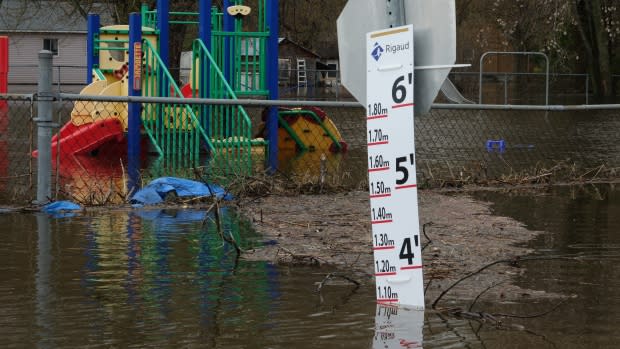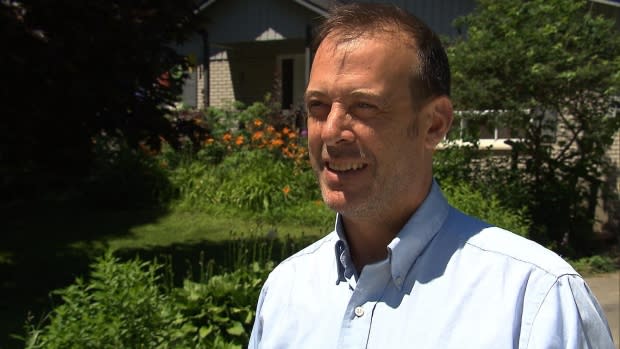Municipalities dealing with 'burden' of adjusting Quebec flood zone map before deadline
Small municipalities in Quebec are working over the summer to improve the map of zones where the government has banned construction due to the risk of flooding.
With severe flooding in two of the last three years in the province, the Quebec government released a preliminary map of "special protection zones" last month as part of its plan to revamp who can rebuild, and how much they're compensated, when their homes flood.
After consulting with governments and residents across the province, the government released a revised version of the map on Monday — removing 30 municipalities from the map entirely.
It issued a decree that no more construction permits would be issued for homes in the protected zones until a new flood-relief framework is put in place.
"It's happening very quickly," said Hudson Mayor Jamie Nicholls. "It does disrupt. And it adds more questions in citizens' minds."

He said there are still inaccuracies in the province's map that need to be addressed.
The suburb west of Montreal is holding a public consultation at the end of July to get more input from residents about potential changes to the map. They have until August 19 to submit more requests for changes.
The government used historical floodplain data, as well as information it collected in 2017 and 2019 about flooded areas.
It also included areas it deemed to be in a zero-to-20-year floodplain — meaning there is at least a five per cent chance of the land flooding each year.
Hudson resident Robin Grinnell says her waterfront home should not be in the protected zone.
"It was a knee-jerk reaction. They jumped into this and stunned a lot of people," she said.
"Hopefully it can get sorted out soon."
While the road was covered with water and she had to use pumps to get water out of her basement, she said her home was spared any major damage in both 2017 and 2019.
She said the government should instead consider requiring people lift up their homes, or mandating insurers provide flood coverage — which Grinnell says she cannot get — instead of decreeing the construction freeze.

With further adjustments to the map expected, the municipalities are left trying to respond to concerned citizens as they go about their normal tasks of issuing permits and doing inspections this season.
Nicholls, the Hudson mayor, said it's putting a "burden" on the town's administrative resources, but they're keeping their heads above water for now.
The municipality of Rigaud — hard-hit by this spring's flooding — is also facing the crunch of trying to process all the citizen input in time to reach the province's deadline.
A Rigaud spokesperson told CBC News by email that the situation has put "a lot of pressure" on the municipality as it continues to handle regular summer business with a reduced staff due to vacations.
But Hudson's mayor thinks the government will still be open to changes to the map after next month's deadline.
"I think residents in general are overwhelmed just with the effect of climate change," he said.
"Now everything is being put into question. Their properties, their lots, how we're going to go forward in the future with planning."


